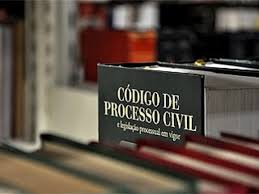Arbitration in Brazil is governed by Federal Act No. 9.307/1996, amended by the Act No. 13.129/2015 (the “Brazilian Arbitration Act” or “BAA”). Brazil was long seen as the “black sheep” of international arbitration until the ratification of the Convention on the Recognition and Enforcement of Foreign Arbitral Awards (the “New York Convention”) in 2002 and […]
Brazil Arbitration
Arbitragem no setor comercialização de energia elétrica no Brasil
O setor de comercialização de energia elétrica do Brasil foi por muito tempo concentrado em um único agente. Mas com a intenção de obter maior eficiência na prestação desses serviços foi implantada a fragmentação dos serviços ou desintegração vertical. Assim, com as alterações introduzidas pela Lei 9.648/1998, a figura do produtor independente e a comercialização […]
Quanto custa uma arbitragem?
No Brasil, o uso da arbitragem, como meio alternativo de resoluções de conflito, tem se firmado e evoluído nitidamente. Apesar das vantagens frequentemente atribuídas ao processo arbitral, os custos de uma arbitragem são, por vezes, mal interpretados. Assim, muitas empresas deixam de incluir cláusulas arbitrais em seus contratos por receio de custos excessivos. Afinal, o […]
A arbitragem e o Código Civil Brasileiro
Apesar de a arbitragem no Brasil ser regulada pela lei n° 9.307/1996, alterada pela lei n° 13.129/2015 (“Lei da Arbitragem”), o Código de Processo Civil brasileiro de 2015 (Lei nº 13.105 de 16 de março de 2015, “novo CPC”), traz importantes disposições concernentes ao instituto da arbitragem. Em sintonia com esse, o novo CPC corroborou […]
O reconhecimento do laudo arbitral estrangeiro no Brasil
Ainda que não proferida pelo juiz togado, o laudo arbitral se equipara à sentença estatal. Assim, a decisão emanada de um tribunal arbitral terá os mesmos efeitos de uma decisão do Poder Judiciário. O Brasil adota o critério geográfico para distinguir as sentenças arbitrais nacionais dos laudos arbitrais estrangeiros. Desta forma, “considera-se sentença arbitral estrangeira […]
Brazil and the Cooperation and Facilitation Investment Agreement (CFIA): A Step Backwards for Arbitration?
In 2015, as a result of the increase of Brazilian investment overseas, the Brazilian government, in consultation with private entities, elaborated so-called Cooperation and Facilitation Investment Agreements (“CFIA”s – or “ACFI” in its Portuguese acronym). The CFIA’s aim was to facilitate and stimulate reciprocal investments between States, especially in strategic sectors, much like the Bilateral […]
Arbitration Proceedings without an Arbitration Clause
Introduction Many fail to realise that arbitration proceedings are entirely possible in the absence of an arbitration clause in an underlying contract. The ability to launch arbitration proceedings depends exclusively on the parties’ will since this dispute resolution method is purely consensual. The required will (or consent to arbitration) is often, but not always, encompassed […]
Arbitration in Brazil
Arbitration in Brazil has developed significantly over recent decades. The latest ICC statistical report for the year 2016 shows an increasing number of Brazilian parties using arbitration, with 123 Brazilian parties compared to 112 in 2014, placing Brazil in 3rd place in party-rankings worldwide. Brazil is today described as having a pro-arbitration legal regime and […]
Aceris Law SARL’s Diverse Clients
Aceris Law LLC has a diverse set of clients thanks to its lawyers’ flexibility, their language skills, their multicultural backgrounds and Aceris’ heavy reliance on modern technology. Since we provide legal representation only for international disputes, Aceris Law LLC has been designed from the ground-up with only this in mind. While we maintain permanent access to offices in 120 […]









